Cam MacMurchy is the Editor in Chief of The Nanfang. This column is his personal opinion and does not reflect the views of his employer or this website.
Ever since the handover in 1997, Hong Kong people have kept alive a vibrant civil society. Every few years an issue crops up – Article 23, the high-speed rail to Mainland China, national education – that results in Hong Kong people pushing back against the perceived interference by the central authorities in Beijing.
Hong Kong has, generally, done what British Prime Minister Margaret Thatcher urged them to do: continue to fight to preserve the city’s way of life under the “one country, two systems” mechanism. And truth be told, the system has worked out alright: Hong Kong remains a largely free and open society, judicial independence has been preserved, the media is as vibrant as ever (though there are some unsettling signs this may change), and the city is richer and more prosperous today than it was in 1997.
Still, this isn’t enough. Hong Kong people have yearned for full democracy for decades, and universal suffrage was promised in the Basic Law. The last few chief executives, the de facto governors of the territory, have been elected by a small group of business elites that are primarily aligned with Beijing. Still, the candidates campaigned openly as though everyone had a vote, even holding live debates on television. The city’s Legislative Council, or LegCo, operates in a similar fashion, with direct elections for about half of the assembly and closed elections for the other half, which represent many of the city’s industries.
There is no question that if there was a test for a region’s readiness for democracy, Hong Kong would pass with flying colours. It has an educated and informed citizenry, free press, and strong and independent institutions. This, along with Beijing’s general adherence to the Sino-British Joint Declaration, has led many to believe that true democracy could one day be achieved — and it might be, but not at the hands of Occupy Central protesters, who are threatening to risk the city’s prosperity in their quest for true universal suffrage.
As a Hong Kong resident, I was appalled like everyone else at the white paper issued by Beijing last week that clearly outlined the central government’s authority over the territory. While parts of it can be debated, Beijing was simply stating what many in China already know: Hong Kong belongs to China, and falls under the authority of the central government. For years, Hong Kong has been able to continue with its British-inspired way of life while focusing more on “two systems” rather than “one country”. In many ways, the city has still not come to terms with the handover of sovereignty back to China, which is what made the white paper seem like such an aggressive document. To the central government, it merely stated what everyone should already know; to Hong Kong, it was like being violently awakened from a dream.
With the chief executive election set for 2017, some in Hong Kong are calling for a public process to nominate candidates. Beijing opposes a public nomination option, and wants a screening mechanism to ensure an overtly anti-China candidate could not end up with the keys to the territory. At the risk of sounding too simple, it’s clear Beijing should have more confidence in Hong Kong (people here would be, in my humble estimation, unlikely to elect somebody antagonistic to Beijing) and the public nomination option is completely suitable, doable, and preferable for the city and it’s future. But being “right” doesn’t mean it’s attainable right now, and Hong Kong is left trying to find a middle ground between a public nomination option and Beijing’s strict screening process.
The Occupy Central protesters, however, are not looking for a middle ground. They are demanding a public nomination right, and unless they achieve it, they plan to block key arteries in the Central business district, hurt the city’s businesses, and put pressure on the Hong Kong SAR and central governments to acquiesce. Emboldened by previous government climbdowns, the protesters believe if they apply enough pressure they can win.
The problem with this approach is it leaves no room for compromise. Quite simply, Beijing will not open up Hong Kong’s nomination process at this stage; the CCP’s absolute priority is maintaining power and sovereignty over Chinese territory, something a public nomination right would threaten. This is the deepest root in the party’s tree, and won’t be dislodged. Which means the odds are overwhelmingly against the protesters before they even begin.
So what can the protesters accomplish? They are left with two options: stage a long-term sit-in that does nothing more than cause a nuisance before it eventually fades away, or move into the realm of civil disobedience, which will most certainly be met with the full force of the law. Worse, if Occupy opts for option two, it could result in Beijing losing patience with Hong Kong and restricting some of the freedoms the territory currently enjoys. The end result could be a society with fewer freedoms, and fewer avenues for improvement, than we have today.
Former Xinhua director in Hong Kong Zhou Nan said the PLA may intervene if the city descends into chaos. That would no doubt further inflame Hong Kong citizens who continue to feel queasy at any overt displays of Beijing’s sovereignty over the territory.
Instead of a confrontational approach, the pan-democrats need to maintain open lines of communication with Beijing while continuing to push for change both inside and outside official channels. Protests and sit-ins are useful tools, too, when deployed strategically. The bottom line, however, is Hong Kong belongs to the People’s Republic of China and Beijing has ultimate authority over the territory, as uncomfortable as that may be. We must accept this, then work within the constraints to fight as hard as we can. We need to think strategically and long-term about how to achieve our goals while ensuring our current, unique way of life is preserved. Both of these things are attainable, but neither will be achieved by holding a gun to Beijing’s head.
Photo: Chinanews







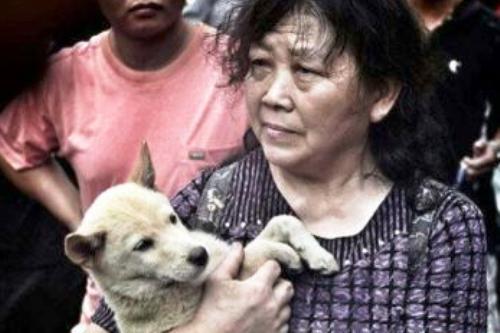
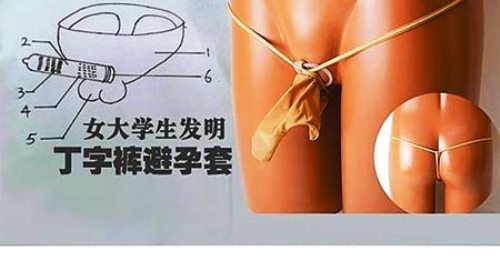


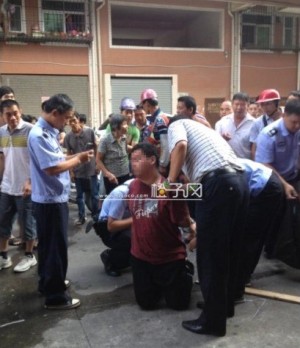


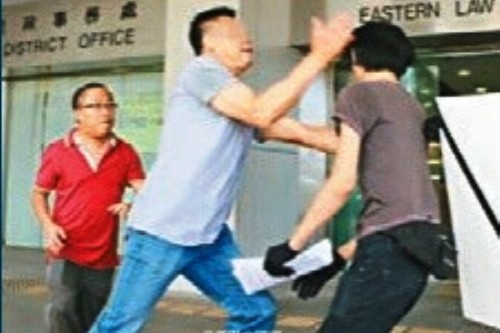
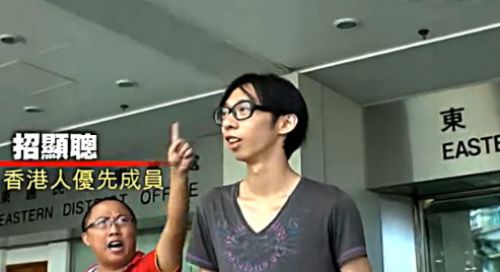
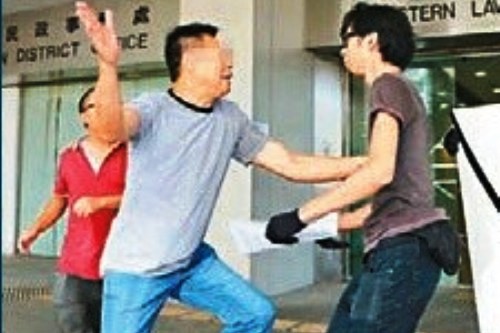
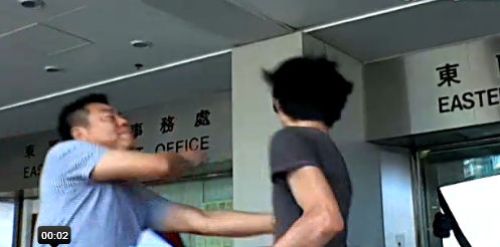
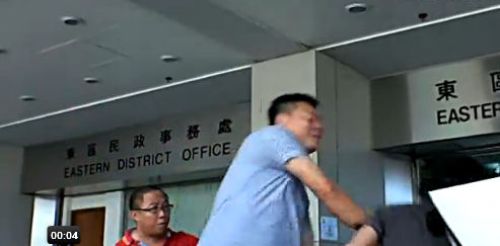
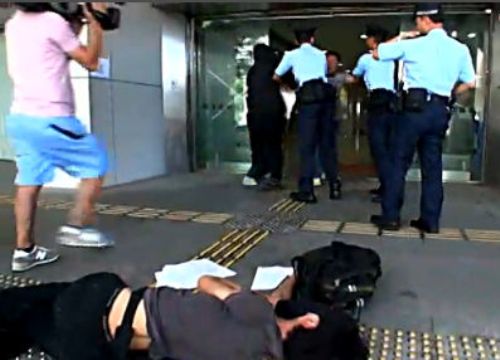


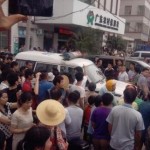
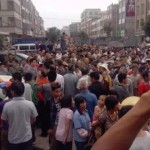
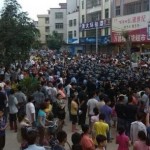
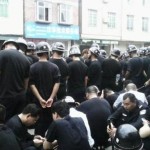










Comment: Hong Kong Risks Losing Freedoms If It Pushes Too Hard
Posted: 06/17/2014 3:16 pmCam MacMurchy is the Editor in Chief of The Nanfang. This column is his personal opinion and does not reflect the views of his employer or this website.
Ever since the handover in 1997, Hong Kong people have kept alive a vibrant civil society. Every few years an issue crops up – Article 23, the high-speed rail to Mainland China, national education – that results in Hong Kong people pushing back against the perceived interference by the central authorities in Beijing.
Hong Kong has, generally, done what British Prime Minister Margaret Thatcher urged them to do: continue to fight to preserve the city’s way of life under the “one country, two systems” mechanism. And truth be told, the system has worked out alright: Hong Kong remains a largely free and open society, judicial independence has been preserved, the media is as vibrant as ever (though there are some unsettling signs this may change), and the city is richer and more prosperous today than it was in 1997.
Still, this isn’t enough. Hong Kong people have yearned for full democracy for decades, and universal suffrage was promised in the Basic Law. The last few chief executives, the de facto governors of the territory, have been elected by a small group of business elites that are primarily aligned with Beijing. Still, the candidates campaigned openly as though everyone had a vote, even holding live debates on television. The city’s Legislative Council, or LegCo, operates in a similar fashion, with direct elections for about half of the assembly and closed elections for the other half, which represent many of the city’s industries.
There is no question that if there was a test for a region’s readiness for democracy, Hong Kong would pass with flying colours. It has an educated and informed citizenry, free press, and strong and independent institutions. This, along with Beijing’s general adherence to the Sino-British Joint Declaration, has led many to believe that true democracy could one day be achieved — and it might be, but not at the hands of Occupy Central protesters, who are threatening to risk the city’s prosperity in their quest for true universal suffrage.
As a Hong Kong resident, I was appalled like everyone else at the white paper issued by Beijing last week that clearly outlined the central government’s authority over the territory. While parts of it can be debated, Beijing was simply stating what many in China already know: Hong Kong belongs to China, and falls under the authority of the central government. For years, Hong Kong has been able to continue with its British-inspired way of life while focusing more on “two systems” rather than “one country”. In many ways, the city has still not come to terms with the handover of sovereignty back to China, which is what made the white paper seem like such an aggressive document. To the central government, it merely stated what everyone should already know; to Hong Kong, it was like being violently awakened from a dream.
With the chief executive election set for 2017, some in Hong Kong are calling for a public process to nominate candidates. Beijing opposes a public nomination option, and wants a screening mechanism to ensure an overtly anti-China candidate could not end up with the keys to the territory. At the risk of sounding too simple, it’s clear Beijing should have more confidence in Hong Kong (people here would be, in my humble estimation, unlikely to elect somebody antagonistic to Beijing) and the public nomination option is completely suitable, doable, and preferable for the city and it’s future. But being “right” doesn’t mean it’s attainable right now, and Hong Kong is left trying to find a middle ground between a public nomination option and Beijing’s strict screening process.
The Occupy Central protesters, however, are not looking for a middle ground. They are demanding a public nomination right, and unless they achieve it, they plan to block key arteries in the Central business district, hurt the city’s businesses, and put pressure on the Hong Kong SAR and central governments to acquiesce. Emboldened by previous government climbdowns, the protesters believe if they apply enough pressure they can win.
The problem with this approach is it leaves no room for compromise. Quite simply, Beijing will not open up Hong Kong’s nomination process at this stage; the CCP’s absolute priority is maintaining power and sovereignty over Chinese territory, something a public nomination right would threaten. This is the deepest root in the party’s tree, and won’t be dislodged. Which means the odds are overwhelmingly against the protesters before they even begin.
So what can the protesters accomplish? They are left with two options: stage a long-term sit-in that does nothing more than cause a nuisance before it eventually fades away, or move into the realm of civil disobedience, which will most certainly be met with the full force of the law. Worse, if Occupy opts for option two, it could result in Beijing losing patience with Hong Kong and restricting some of the freedoms the territory currently enjoys. The end result could be a society with fewer freedoms, and fewer avenues for improvement, than we have today.
Former Xinhua director in Hong Kong Zhou Nan said the PLA may intervene if the city descends into chaos. That would no doubt further inflame Hong Kong citizens who continue to feel queasy at any overt displays of Beijing’s sovereignty over the territory.
Instead of a confrontational approach, the pan-democrats need to maintain open lines of communication with Beijing while continuing to push for change both inside and outside official channels. Protests and sit-ins are useful tools, too, when deployed strategically. The bottom line, however, is Hong Kong belongs to the People’s Republic of China and Beijing has ultimate authority over the territory, as uncomfortable as that may be. We must accept this, then work within the constraints to fight as hard as we can. We need to think strategically and long-term about how to achieve our goals while ensuring our current, unique way of life is preserved. Both of these things are attainable, but neither will be achieved by holding a gun to Beijing’s head.
Photo: Chinanews